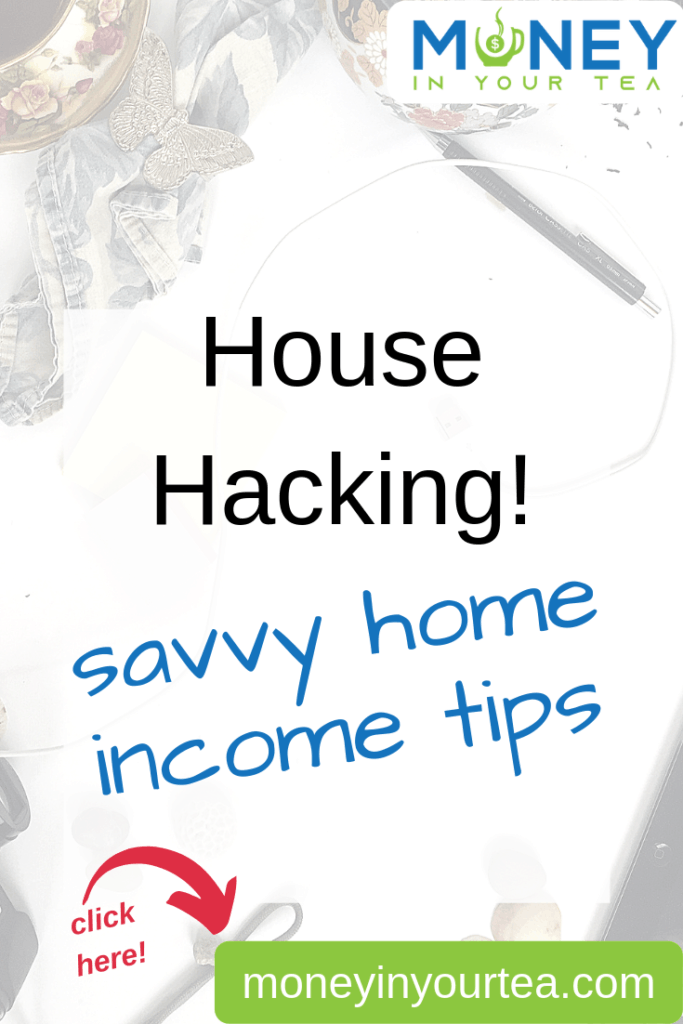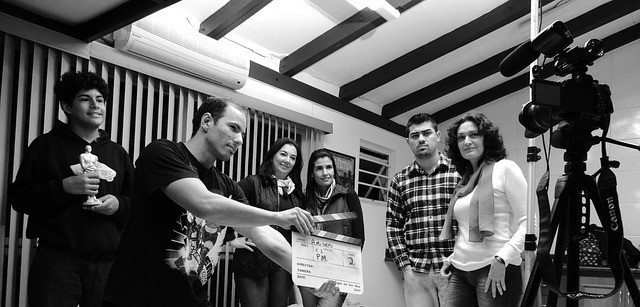If you live in a city with an expensive housing marking, these house hacking ideas will be essential to help you buy your first home. Of course the best way to save money on buying a house or condo is to get a job in a city with cheaper housing, and move there. But sometimes you need – or want – to live in an expensive city.
What do you do if you want to buy a house or condo in an expensive city? The basic principles of house hacking is to get others to help pay for the cost of your housing expenses.
This post may contain affiliate links, which means I make a small commission if you decide to purchase something through that link. This has no cost to you, and in some cases may give you a discount off the regular price. If you do make a purchase, thank you for supporting my blog! I only recommend products and services that I truly believe in, and all opinions expressed are my own. As an Amazon Associate I earn from qualifying purchases. Please read my disclaimers for more information.
Types of Mortgages
Conventional Mortgage
A conventional mortgage has at least a 20% down payment. When the average selling price of a house in Toronto is $950,000 and a condo is $550,000, it’s hard to save up hundreds of thousands of dollars. By the time you’ve saved enough, the housing market has risen again, and you have to keep trying to catch up to an ever-increasing target.
For example, a 20% down payment on a selling price of $550,000 is $110,000. Let’s say it takes you four years to save $110,000. But four years from now, that same condo might cost $650,000! So now you have to save another $20,000 to make that 20% down payment, which takes another year. See what I mean?
High-Ratio Mortgage
A high-ratio mortgage has less than 20% down payment. You must qualify for mortgage insurance. In Canada, there are three companies that provide insurance: CMHC (Canada Mortgage and Housing Corporation), Genworth, and Canada Guaranty.
To qualify for mortgage insurance, you must have a reliable source of income and a good credit score. See my post on credit cards for more info on developing a good credit history.
Typically, the minimum down payment is calculated as 5% of the first $500,000, and 10% of the difference between $500,000 and up to $1,000,000.
For example, if you’re purchasing a property for $600,000, you would have 5% of the first $500,000 of the purchase price, plus 10% of the remaining $100,000. That is, $25,000 + $10,000, for a total of $35,000 down payment. That’s a lot easier to save up for than $120,000 for a conventional mortgage.
With a high-ratio mortgage, you will be charged an insurance premium. The higher the down payment, the lower the premium. Note that this insurance has the mortgage lender as a beneficiary, not you. That is, if you stop making your mortgage payments AND the housing market drops so that the house now is valued less than the outstanding balance of the mortgage – then the lender will not lose money.
Ironically, though, because you have mortgage insurance, you might actually qualify for a bigger discount on your mortgage interest rate. More about that in a minute.
House Hacking through Co-Ownership
If you can’t afford a house on your own, you could consider buying a property with a friend. This is a fabulous way to house hack! Your share of the down payment is lower, and your share of the mortgage payment is lower. Other expenses will go down, too, because you share the cost of property taxes, heat, electricity, internet, and other utilities. In addition, perhaps shared meals at home will decrease your food costs.
There was a great article recently in the Toronto Star about six – SIX! – millennials who bought a property together. What really stood out to me is that they all contributed a different amount to the down payment, so they have different ownership shares. But they are all equal in shared housing decisions. It may be a bit more challenging to find a bank willing to do a co-ownership mortgage, especially for a larger group like this, but clearly it can be done.
You would need a legal co-ownership agreement to cover all the possible future events: what if one person gets married; what if someone wants out; what if one person defaults on their mortgage payments? You would also need a set of house rules, written down, and a dispute mechanism. Because we all have our own foibles that drive others crazy! And everyone needs to know how to share in the housework.
Negotiating your Mortgage
Negotiate the Interest Rate
Shop around for the best mortgage interest rate you can get. It will literally save you thousands of dollars over the life of your mortgage.
Go to the bank where you have the most relationships already (chequing and savings accounts, TFSA, etc.) but also check out a mortgage broker to see what kind of deals they can get for you.
If you get a better deal through the broker at another institution, but you really want to have your mortgage at your usual bank for simplicity, then use that other offer as a negotiating tool. You wouldn’t walk onto a new car lot and pay the sticker price, so don’t do that with your mortgage. Frankly, your house costs a lot more than a car!
Negotiate the Terms
Be sure to get a mortgage that allows you to increase the monthly payment and allows you to contribute occasional lump-sum payments. As your income increases, through getting a raise or a higher-paying job, you can put part of the additional amount into paying off your mortgage faster. You’ll save tens of thousands of dollars in interest, and shave years off the length of your mortgage.
Check if these additional payments go into a mortgage cash account that you can access. If your situation changes down the road and you need extra funds – like we did recently for a big renovation – you can withdraw some or all of your prepayment amount. However, the downside to this is that the length of time until you pay off the mortgage will go up again.
Live Close to Work
After housing, transportation is a big household expenditure. If you are in a big city with a good public transit network, look into buying a place on a well serviced route. Buy a transit pass and sell your car. (Or don’t buy a car in the first place.) New cars lose about 20% of their value in the first year, and 10% of the remaining value every year after that. Add on the cost of gas, parking, maintenance, repairs – cars are expensive. It’s far cheaper to take public transit, Uber or taxi, use a car share service, or rent a car on occasion.
Even better, buy a place close enough to work that you can walk or bike every day! If transit is $3 each way, you’ll save $1,500 each year by walking or biking. Plus, if you’re walking or biking you can cancel your gym membership.
Rental Income
Rent out your Garage if you have no Car
Not only can you save thousands of dollars by living close you work, you also have another house hacking opportunity! Rent out your garage or your condo parking space for extra income! Your garage can be used either for parking (obviously) or as someone else’s storage space. For instance, real estate stagers have a lot of big furniture they need to store in between staging opportunities. In addition, if you have a country home, you could rent out space to store someone’s boat or RV for the winter.
Rent out an Apartment in your House
Here is one of the most profitable house hacking opportunities! Consider buying a house with one or more rental apartments. Our current house, when we bought it 14 years ago, had two basement apartments, one main floor apartment, and one upper apartment. With a big family of then three (and now four) Gen Z kids, we converted the main floor and upper apartments into our home. But to this day, we still rent out the two basement apartments.
If your home isn’t suitable for a basement apartment, you could still rent out that unused space for storage, as an artist studio, a carpenter’s workshop, or anything else.
Rent out a Room in your Condo
This works with a condo too, where you can buy a two-bedroom apartment and rent out the second bedroom until you need it.
Consider this scenario: You look at a 1-bedroom condo for $450,000, with $50,000 down payment and negotiate for a mortgage rate of 3.35%. Your monthly payments are $2,026, including your mortgage insurance premiums because it’s a high-ratio mortgage.
As an alternative, you also look at a 2-bedroom condo for $500,000. With the same $50,000 down payment and 3.35% mortgage rate, your monthly payments are now $2,280. But you rent out the second bedroom for $850 per month. Now your housing cost is $1,430 per month!
You save over $7,000 per year, which can go towards paying your mortgage faster, investing for retirement, or any other savings goal.
Even better, each year you can increase the rent you charge, but your mortgage payment stays the same. And down the road, if your household grows and you need more space – you don’t have to move.
It’s important to note that all sources of income, including rental income, need to be reported on your taxes. But you can also offset the income with related expenses, such as a share of your utility bills and mortgage interest payment.
Popular House Hacking with Airbnb
The short-term house hack alternative to a rental contract, is Airbnb! You can list everything from a fully-furnished spare bedroom to your living room sofa.
Alternatively, you can list your whole home or apartment while you’re away on vacation.
My good friend MW, a single mother, has listed a spare bedroom on Airbnb for several years. This has allowed her to work only part-time in order to spend more time with her children. Another family I know has maximized their Airbnb income by putting bunkbeds in spare rooms and renting out beds. They have funded their international sailing trips this way!
Listing with Airbnb also gives you the flexibility to NOT list your extra space when you have friends or family from out of town coming to stay with you.
You can click through the link in the image and fill out your information just to find out how much you could earn. There’s no commitment to activate your listing until you are ready.
Related reading: Earn Side Income from Airbnb
Homestay Student Rooms
Another great way to house hack some income with very little effort is homestay student rooms. For several years we took in students from around the globe to stay in our spare bedroom. (Now our kids are older, they each have their own room instead of bunk beds, so no more spare room for us to rent out.) The students were great, and we met young people about age 15 to 24, who stayed with us for 3 to 4 weeks while they took English language courses.
Firstly, we signed up with an English language school. We were responsible for providing a furnished room and 2 or 3 meals a day. For dinner, we just made a little more of what we were already making. And after the first couple of days, they made close friendships with their classmates and as often as not, weren’t home for meals. They were on vacation, so they explored the city.
It was a great opportunity for us and our children to meet people from around the world: Brazil, France, Spain, Japan, Korea, and more. Moreover, if you keep in touch with your students, it will give you contacts in those countries for your own future travel.
Ads by RateSupermarket.ca
Film Shoot Locations
A fantastically profitable opportunity for house hacking is to register your home for film shoots. Your house doesn’t have to be fabulous, sometimes films need a location that looks a little run down or “blue collar”. Fees vary widely, but can range from several hundred dollars per day up to as much as $10,000 PER DAY!
Renting out your house for a film shoot may require that you stay in a hotel for a while, but the film company will cover that cost. You also need to be relaxed about having a bunch of strangers and large equipment in your space for a while.
Damage to your property is rare, but film companies have insurance and will repair anything. Generally they leave the property in better condition than they started, as they want to maintain their good reputation. Sometimes studios will make minor changes, such as painting a room, and you can keep it if you like it or have them repaint the original colour when they’re done.
However, the income is sporadic, as the location has to fit the director’s needs. This would provide a great supplement for your travel fund, but don’t rely on it to meet your basic expenses.
Summary
Your home will likely be the most expensive purchase you ever make. House and condo prices have increased at sometimes alarming rates, and you might wonder if you’ll ever own property!
And in these times when the news is filled more and more with the precariousness of work, it’s a relief to know that your income comes from multiple sources. While our four Gen Z kids are still a bit young to buy a property, we will definitely be encouraging them to buy something with a low down payment and a great interest rate, that will generate some income to help offset the cost of the mortgage.
Related reading:
- Buy the house you can afford using the Rule of 200
- Earn side income from Airbnb
- Find all the tools and resources you need to start a money blog
Share this post with your friends, and tell me in the comments about your own house hacking experiences!






